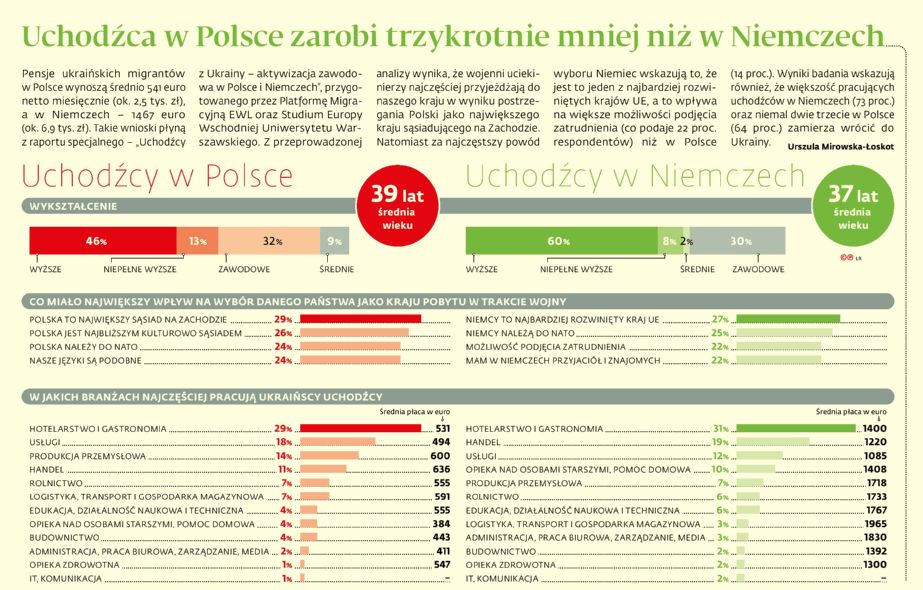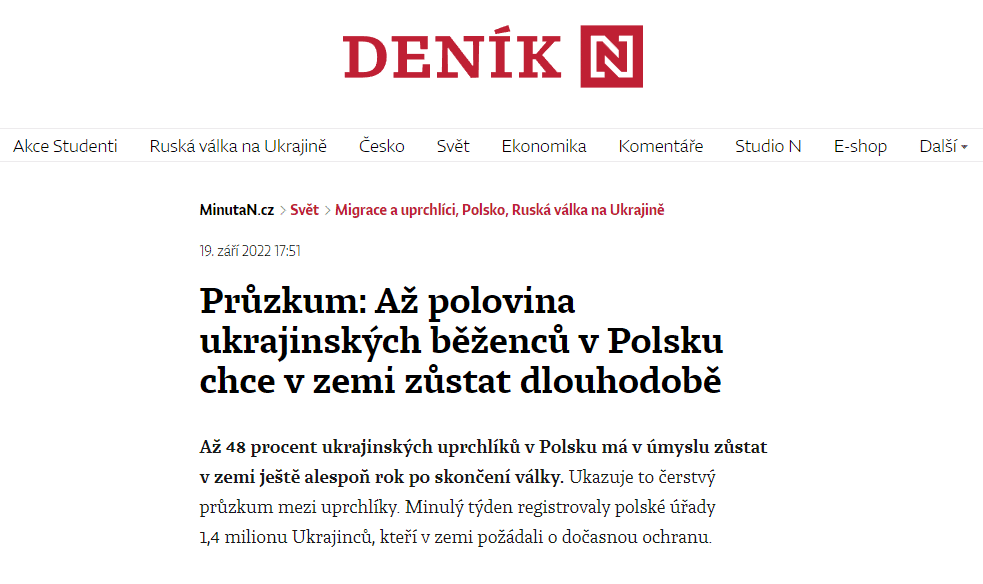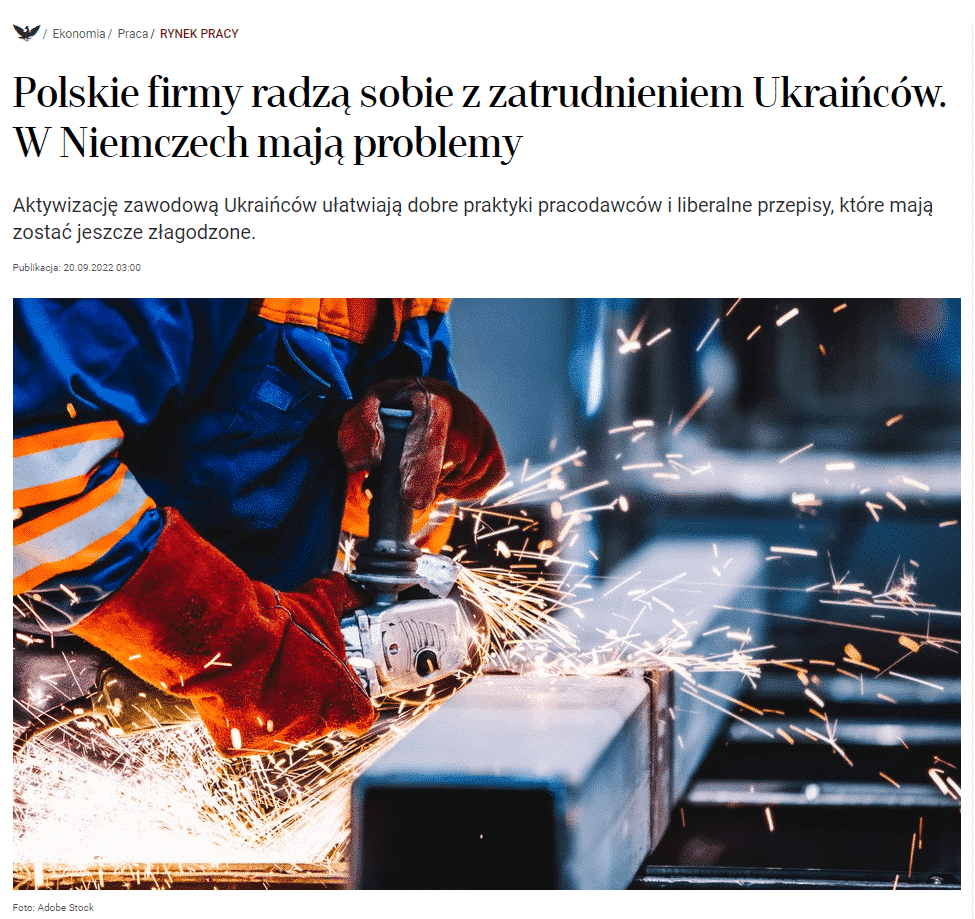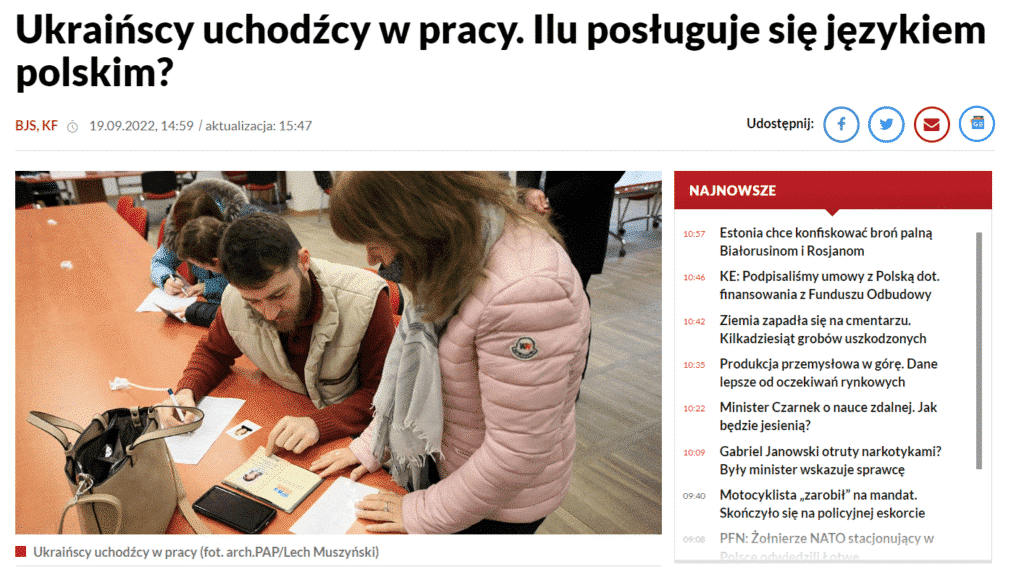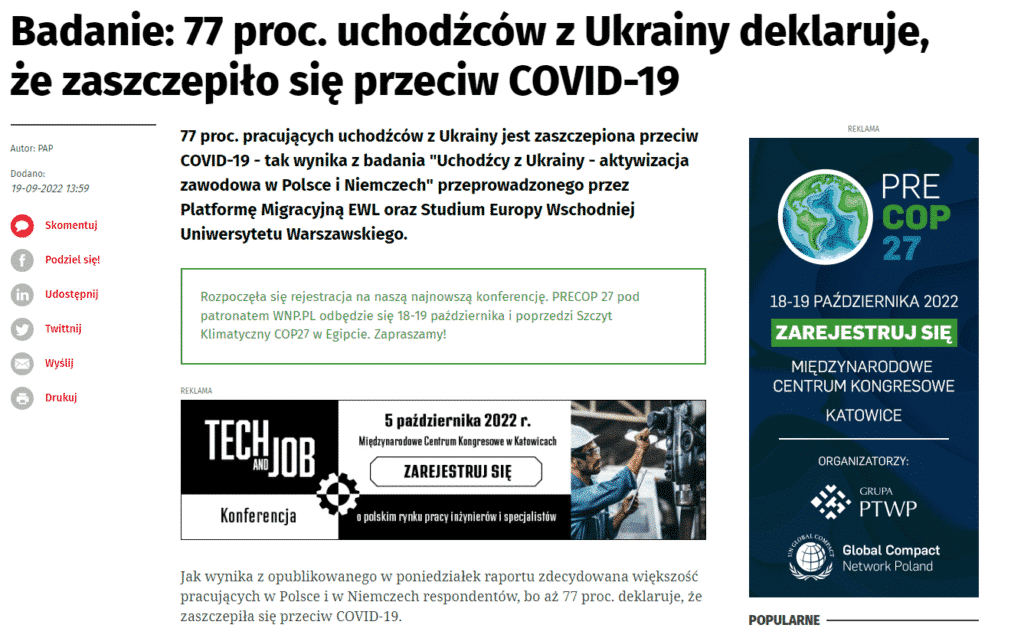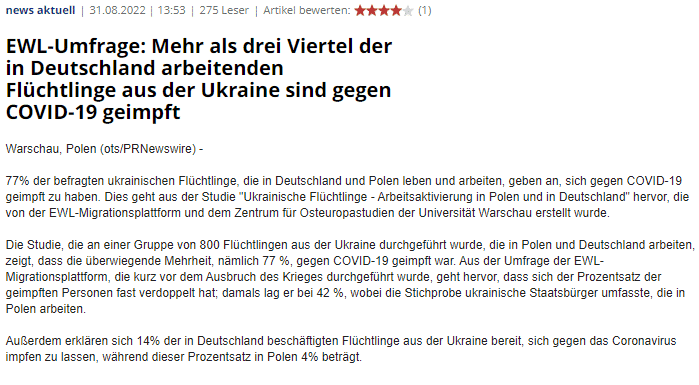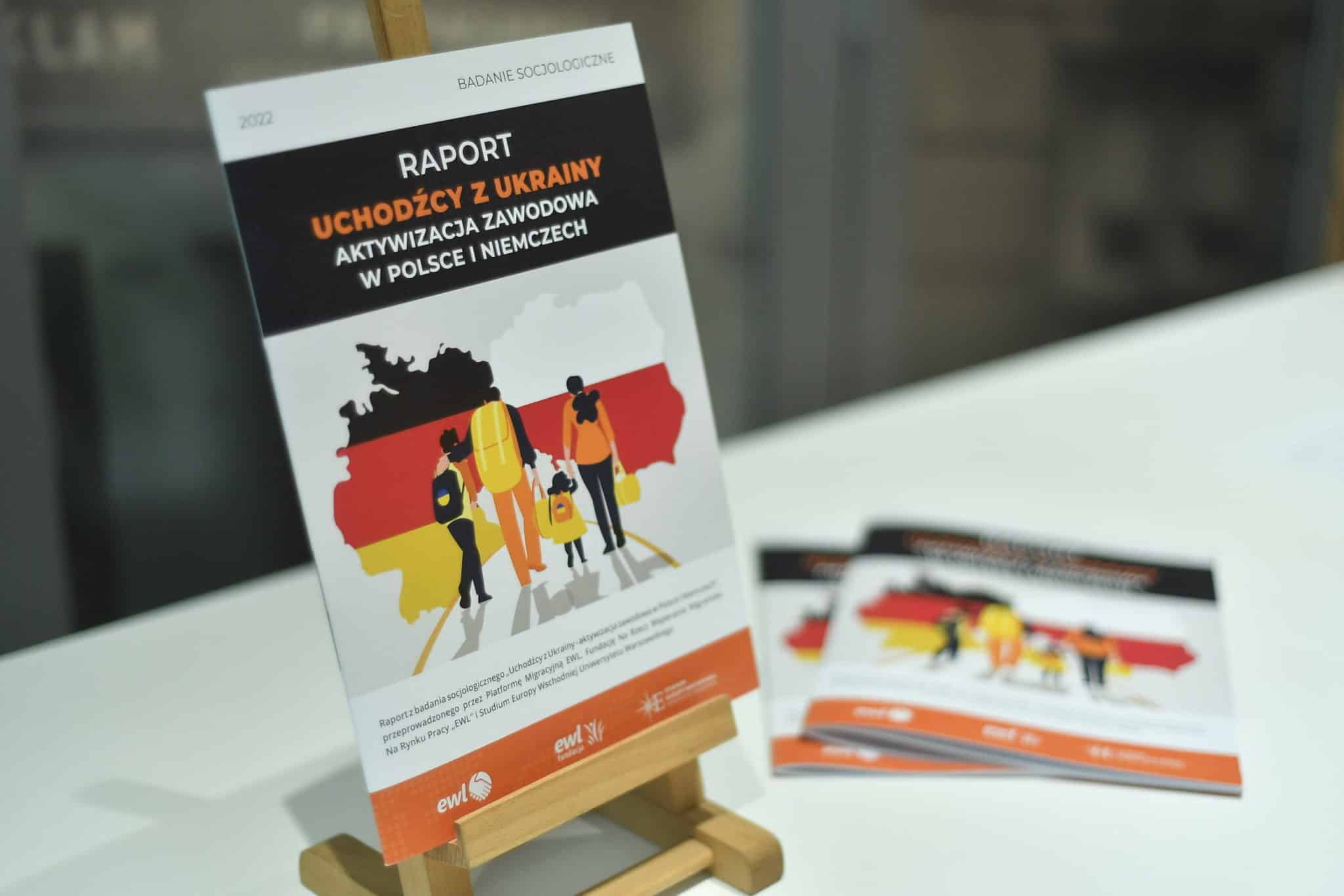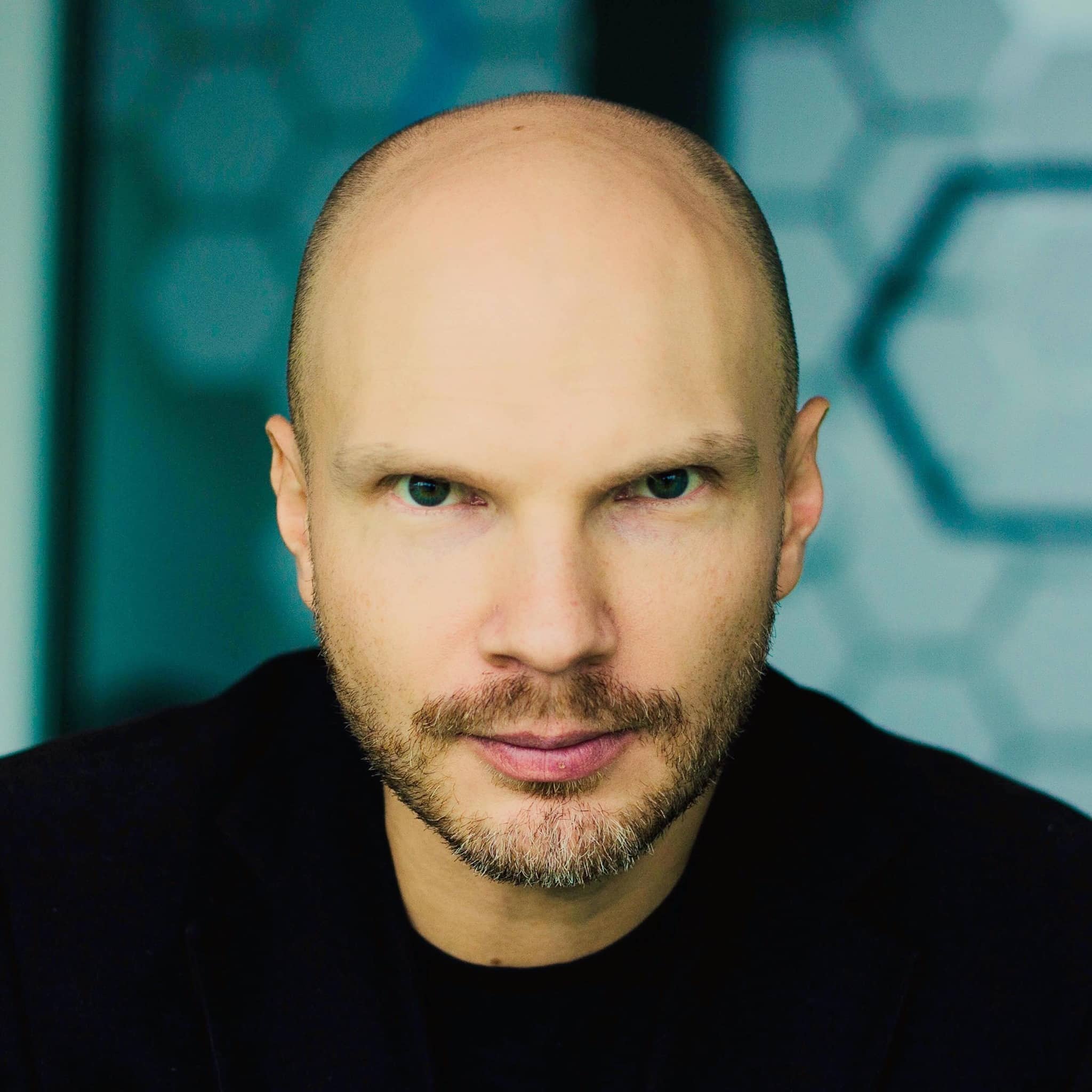On Monday, 19 September, the Polish Press Agency in Warsaw hosted the presentation of the report on the latest sociological study ‘Ukrainian refugees – labour activation in Poland and Germany’. The key findings of the study conducted among refugees from Ukraine who arrived in Poland and Germany after 24 February 2022 and took up employment in these countries were presented by experts of the EWL Group Migration Platform and the Centre for East European Studies at the University of Warsaw.
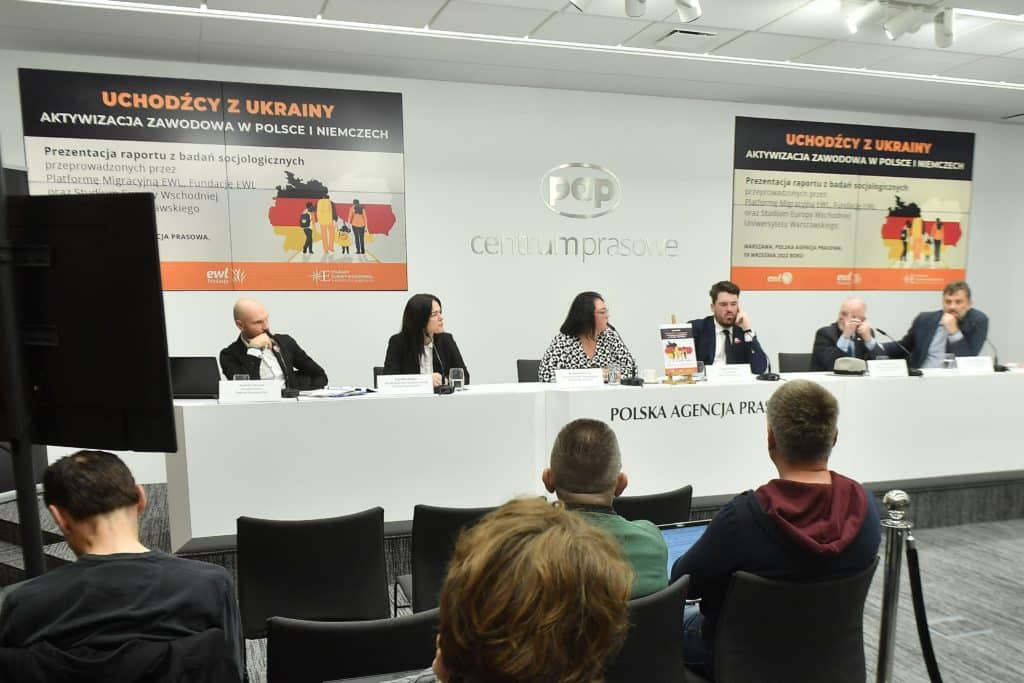
‘Poland has achieved unprecedented success not only in the area of aid, but also in labour activation of Ukrainian citizens fleeing the war. Since its outbreak, more than 430 thousand refugees, i.e. approx. 2/3 of the working-age refugees (670 thousand), have found employment. So far, no country in history has ever succeeded in providing employment for such a number of refugees,’ said Andrzej Korkus, the CEO of EWL Group, at the press conference.
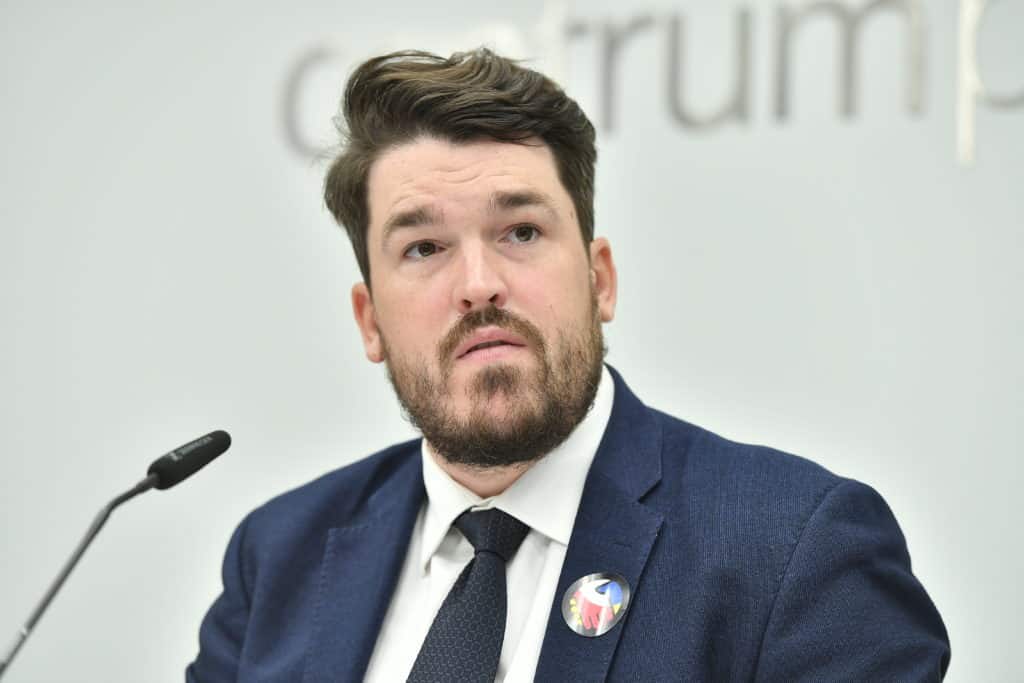
‘The study showed that as many as 68% of refugees are able to communicate in Ukrainian in Polish workplaces. In Germany, this percentage is four times lower. Poland’s advantage in this respect is the elimination of the language barrier through employing in key company positions Ukrainian nationals who speak Polish. They are the guarantor of efficient induction of foreigners and of effective communication between them and the Polish employers,’ added Michalina Sielewicz, International Development Director at the EWL Group.
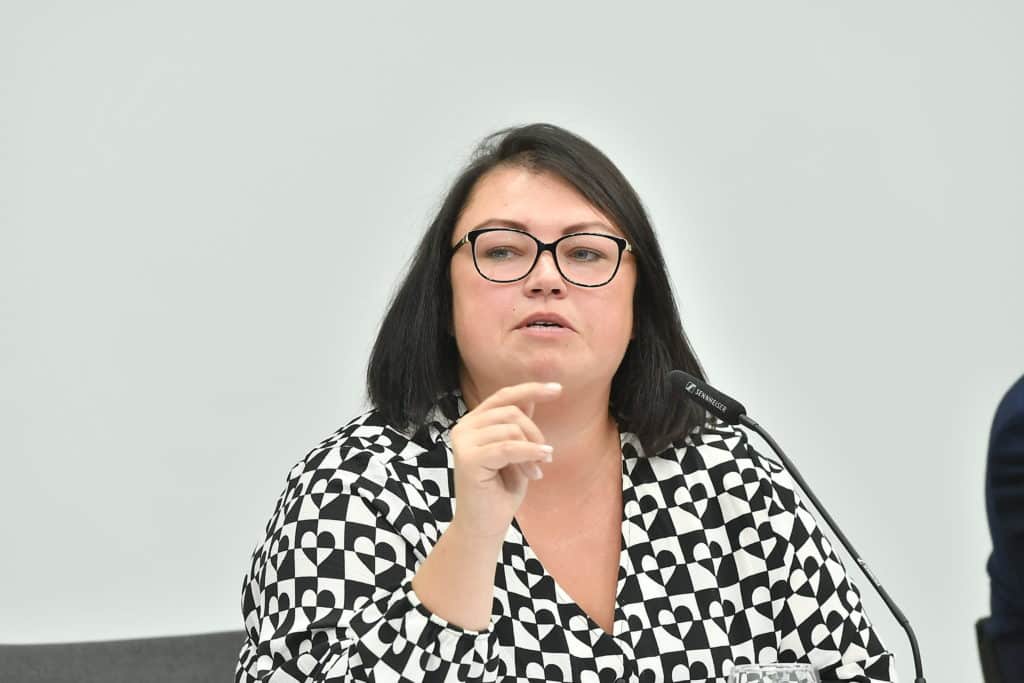
‘The vaccination level against COVID-19 among the refugees working in Poland and Germany is very high and even higher than the average level in Poland. This is because of the rules implemented in the workplace, including the obligation to vaccinate. And, as we know, these are stricter and more respected in Germany than they are in Poland,’ stressed Anatoliy Zymnin, Spokesperson for the EWL Group.
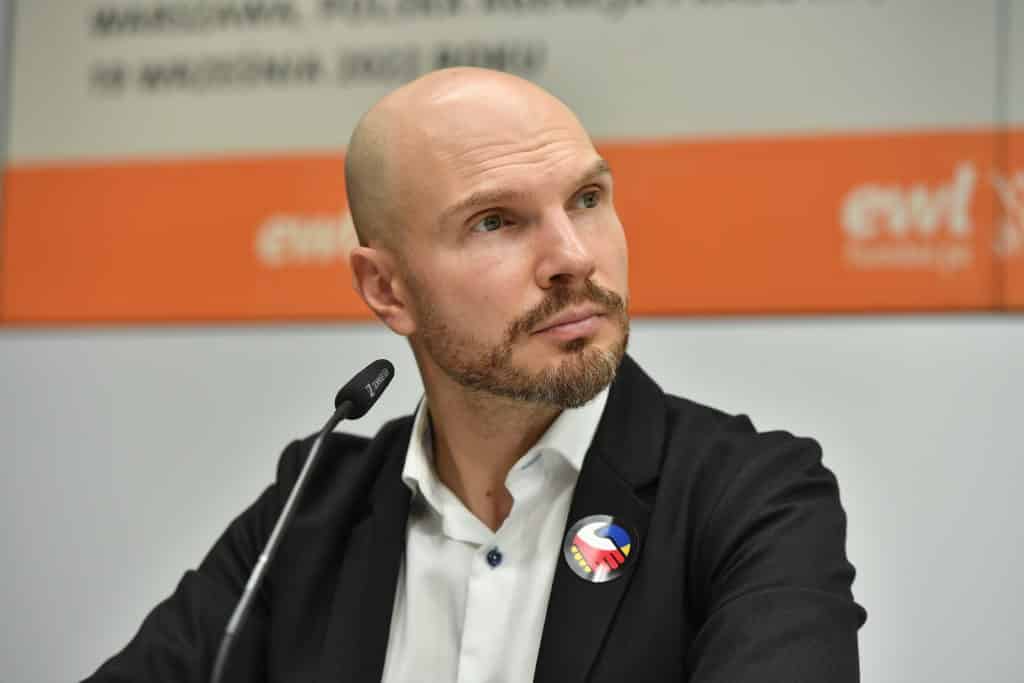
‘We do not know the exact number of refugees employed in Germany. However, calculations by the Munich-based Ifo Institute for Economic Research show that close to 160,000 refugees might have found employment in Germany,’ said Karolina Klages, Business Development Manager (DACH) at the EWL Group, at the meeting with journalists.
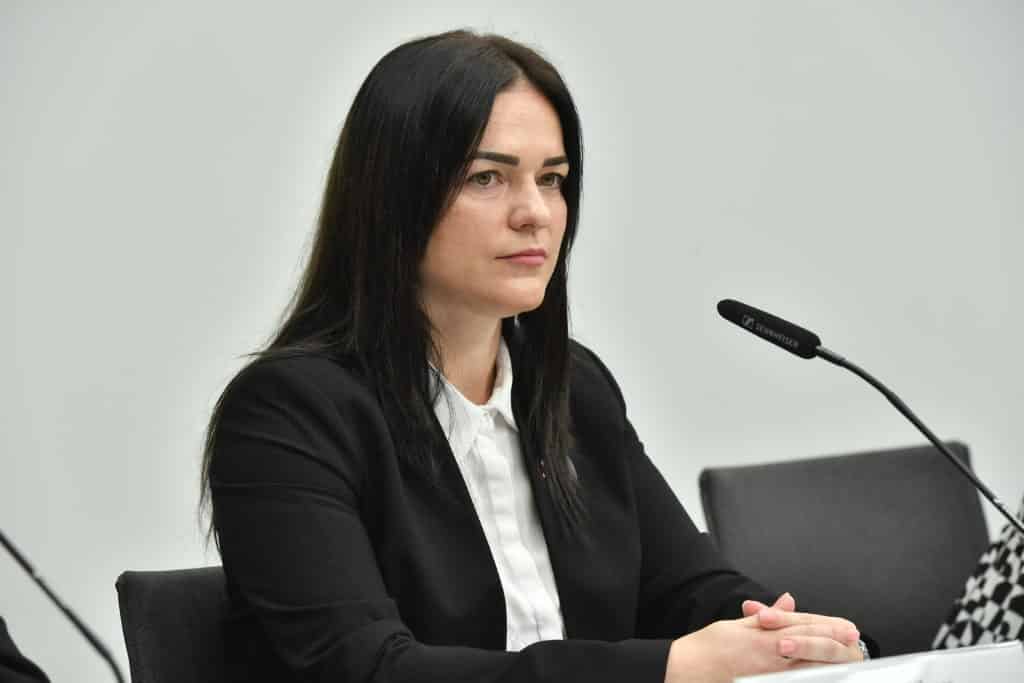
‘In the context of migration, we are not only talking about adults who are successfully seeking work, but also about the integration of children. They need to be guaranteed care and the Polish education system has to to be adapted to those needs. The same challenges also apply to Germany,’ admitted Professor Mariusz Kowalski of the Centre for East European Studies.
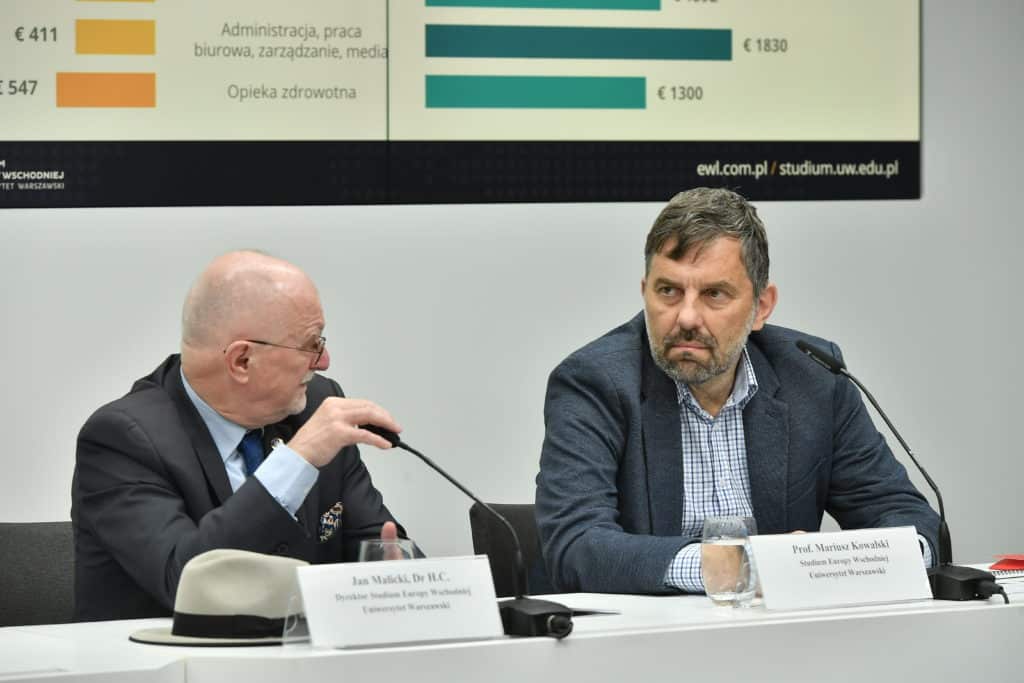
‘It should be noted that the migrants are very engaged – they are learning the language, both Polish and German. They are also active professionally – you can see that they are trying,’ concluded Jan Malicki, Director of the Centre for East European Studies.
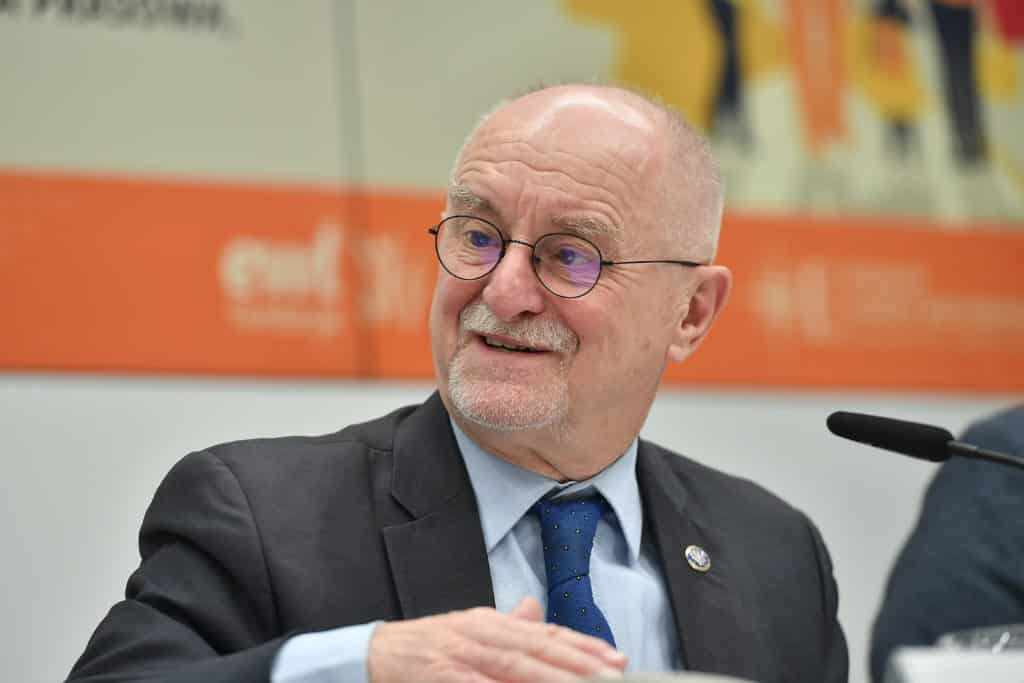
The results of the study have already been quoted by Polish and foreign media, including Rzeczpospolita, Dziennik Gazeta Prawna, PAP, PulsHR, Bankier, Forsal, PolskieRadio and Ceske Noviny.
